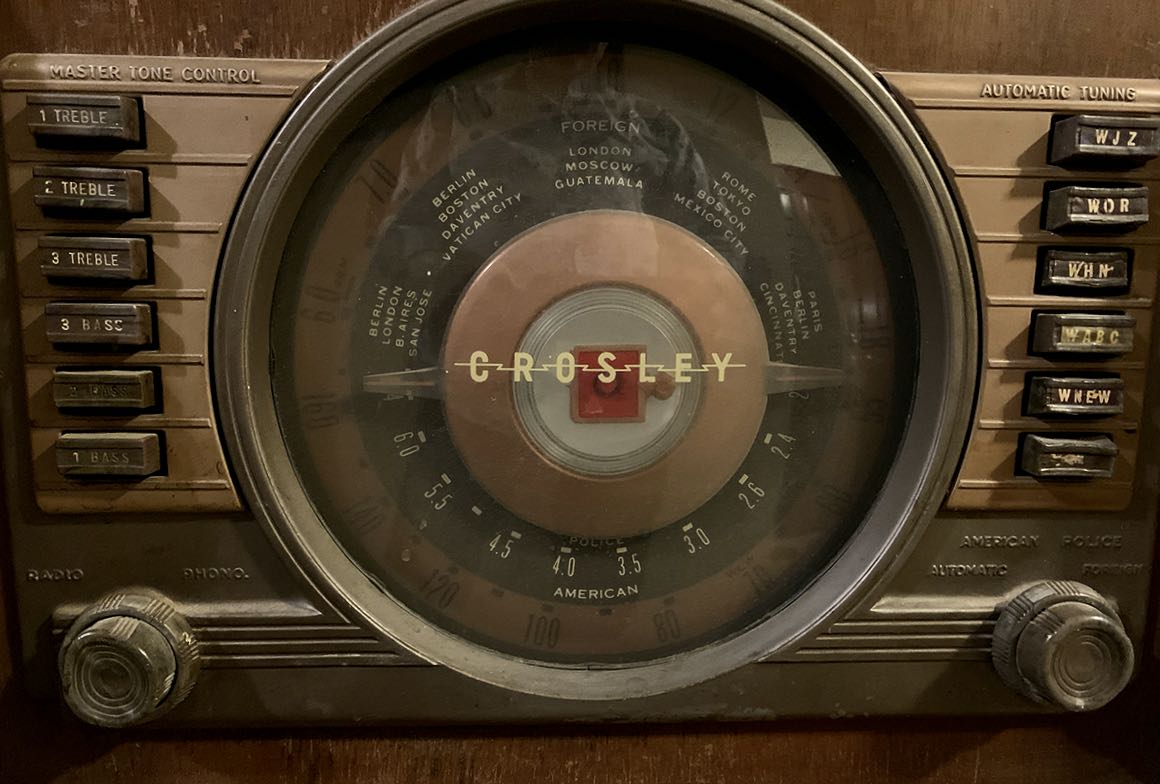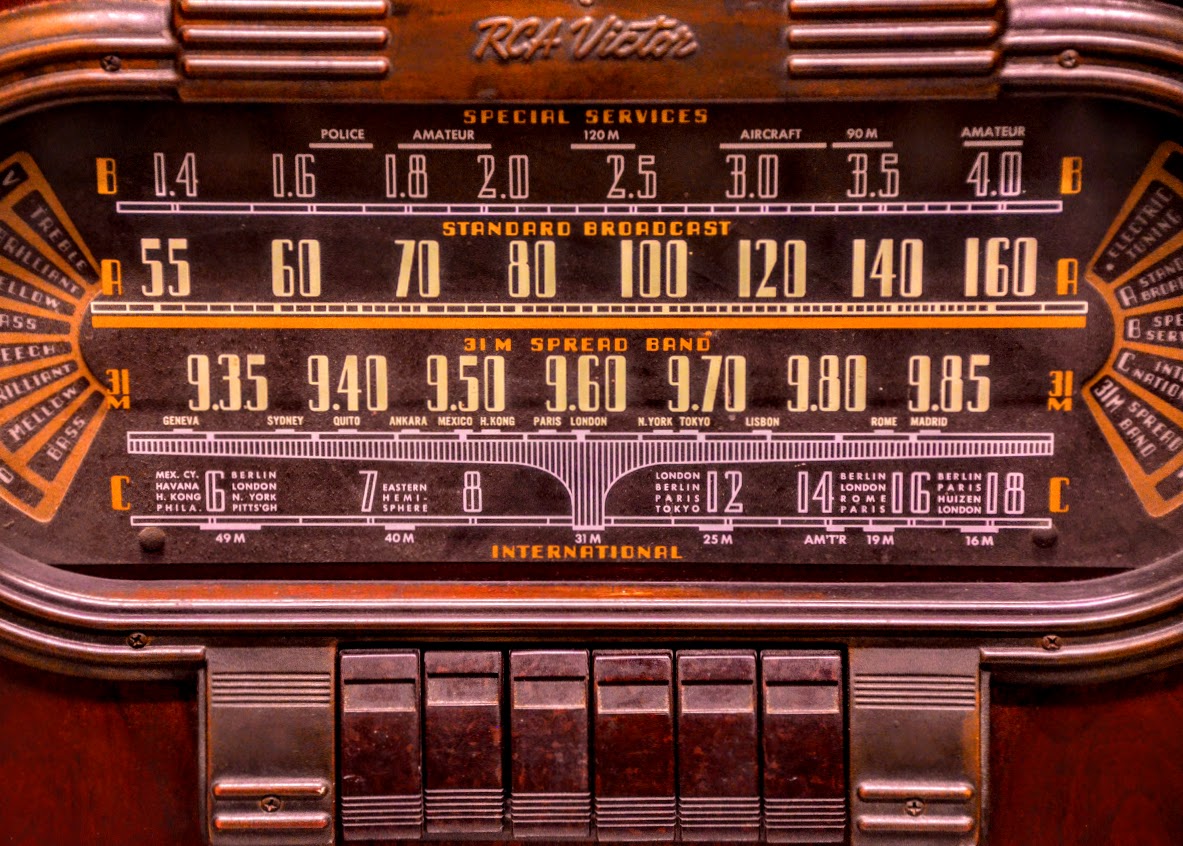Radio Waves: Stories Making Waves in the World of Radio
Welcome to the SWLing Post’s Radio Waves, a collection of links to interesting stories making waves in the world of radio. Enjoy!
Many thanks to SWLing Post contributors David Iurescia and NT for the following tips:
When the BNR “spoke” Polish (BNR)
Radio Bulgaria is trying to track down old recordings of its radio programmes
Today, the Bulgarian National Radio’s foreign language service Radio Bulgaria “speaks” 11 languages. Through the years, languages have been added, others have been dropped – something that happened to the Polish-language programmes. They were aired by Radio Sofia, as the Bulgarian National Radio was called then, and by Radio Varna channel in the seaside city of the same name, but today they are rarely made mention of in the history of the BNR.
We were contacted by ham operator Jaros?aw Jedrzejczak from Poland who helped us pick up the missing information, putting an enormous amount of effort into tracing the history of the undeservedly forgotten programmes in Polish.
“Radio is a hobby of mine. When shortwave radio stations started closing down their Polish-language services, I took an interest in their history,” Mr. Jedrzejczak says. “In the Polish weekly “World of radio” I came across an advert for Radio Sofia from 1946, from which I found out it had aired 10-minute broadcasts in Polish from Bulgaria. That was when I started looking for information about Radio Sofia and to listen to these broadcasts. That was 30 years ago.”
Jaros?aw set about tracking down the Polish broadcasts. He got in touch with the first anchors and translators of Radio Sofia and Radio Varna’s Polish-language programmes, their heirs, collected the memories of the first people working at the foreign-language programmes, kept up a correspondence with the BNR. Who were they, who were the people speaking their own language from faraway Bulgaria? [Continue reading…]
Your Phone Has Nothing on AM Radio (The Atlantic)
Why Ted Cruz and Bernie Sanders are teaming up to save the century-old technology
By Jacob Stern
There is little love lost between Senator Ted Cruz and Representative Rashida Tlaib. She has called him a “dumbass” for his opposition to the Paris Climate Agreement; he has called her and her allies “shills for terrorists” on account of their support for Palestine. Lately, though, the right-wing Cruz and the left-wing Tlaib have found a cause they can both get behind: saving AM radio.
In recent years, a number of carmakers—BMW, Volvo, Tesla—have stopped offering AM radio in at least some models, especially electric cars. The problem is that their motors cause electromagnetic interference on the same frequency bands in which AM radio operates, in some cases making the already fuzzy medium inaudible. Carmakers do have ways to filter out the interference, but they are costly and imperfect—all to maintain a format that is in decline anyway. AM radio was eclipsed by the superior-sounding FM in the late ’70s, and the century-old technology can seem akin to floppy disks in the age of Spotify and podcasts. According to Ford’s internal data gathered from some of its newer vehicles, less than 5 percent of all in-car listening is to AM radio. Which is perhaps why Ford decided last year to drop AM from all of its vehicles, not just EVs.
Because so much listening happens in the car, the Ford news seemed like the beginning of the end for the whole medium. But just a few weeks after announcing that decision, the company reneged in response to political pressure. Before Ford’s reversal, Cruz and Senator Ed Markey, a Democrat from Massachusetts, had introduced the AM Radio for Every Vehicle Act, which would require exactly what its title suggests. [Continue reading…note: paywall]
The HBCU Radio Preservation Project (WYSO)
The HBCU Radio Preservation Project is dedicated to honoring and preserving the vibrant history and cultural resource that is HBCU radio.
Nearly a third of the 104 Historically Black Colleges and Universities (HBCU) have radio stations, and many have been on the air for more than fifty years. Much of the material created at these stations is at risk of being lost. Magnetic tape and other obsolete formats are deteriorating, and with them the primary source material that documents the rich history and diversity of the Black experience through the Civil Rights era and beyond. Present day digital material is also at risk.
The HBCU Radio Preservation Project grew out of a 2019 survey of HBCU radio stations to assess their preservation practices and needs. We collaborated with the Northeast Document Conservation Center (NEDCC) on a follow up pilot project. With the generous support of the Mellon Foundation, we are now in the implementation phase of the project, partnering over the next four years with WYSO, NEDCC, the Margaret Walker Center at Jackson State University and the American Archive of Public Broadcasting. The goals of the project are to foster an ethos of preservation at HBCU radio stations, to preserve the stations’ audio collections, and to facilitate capacity-building and sustainability through connecting and supporting the stations and the institutional archives on campus.
We will be able to serve all 29 HBCU radio stations through the project. Our replicable model will serve not only HBCUs, but ultimately any college radio station—and tribal stations, rural stations, and other public and community stations. [Continue reading…]
Golden Age of Radio in US (DPLA)
Tuning into the radio is now an integrated part of our everyday lives. We tune in while we drive, while we work, while we cook in our kitchens. Just 100 years ago, it was a novelty to turn on a radio. The radio emerged at the turn of the twentieth century, the result of decades of scientific experimentation with the theory that information could be transmitted over long distances. Radio as a medium reached its peak—the so-called Radio Golden Age—during the Great Depression and World War II. This was a time when the world was rapidly changing, and for the first time Americans experienced those history-making events as they happened. The emergence and popularity of radio shifted not just the way Americans across the country experienced news and entertainment, but also the way they communicated. This exhibition explores the development, rise, and adaptation of the radio, and its impact on American culture.
FCC Report 2/18: Should Stations Be Required To Offer EAS Alerts In The Language Of Its Programming? (Radio Insight)
The commission is opening a comment period for a proposed rulemaking for a “simplified multilingual alert processing approach for EAS alerts through which pre-scripted alerts that have been pre-translated into non-English languages can be initiated by alert originators for distribution to the public by the TV and radio broadcasters, cable service providers, and other services that make up the EAS public alert distribution system.” Among the topics the proposal seeks comments are whether stations should be required to transmit alerts in the language of the program content it carries, whether stations should also be allowed to transmit templated alerts in languages that do not correspond to the content offered on the station or whether to limit it to the language that corresponds to the station’s programming.
The proposal would see alerts offered in Arabic, Chinese, French, German, Haitian Creole, Hindi, Italian, Korean, Portuguese, Russian, Spanish, Tagalog, and Vietnamese along with English and ASL. The FCC noted that the preliminary 2023 national EAS test revealed that already 2% of EAS participants transmitted alerts in Spanish, while 0.1% did so in other non-English languages. [Continue reading…]
Do you enjoy the SWLing Post?
Please consider supporting us via Patreon or our Coffee Fund!
Your support makes articles like this one possible. Thank you!




